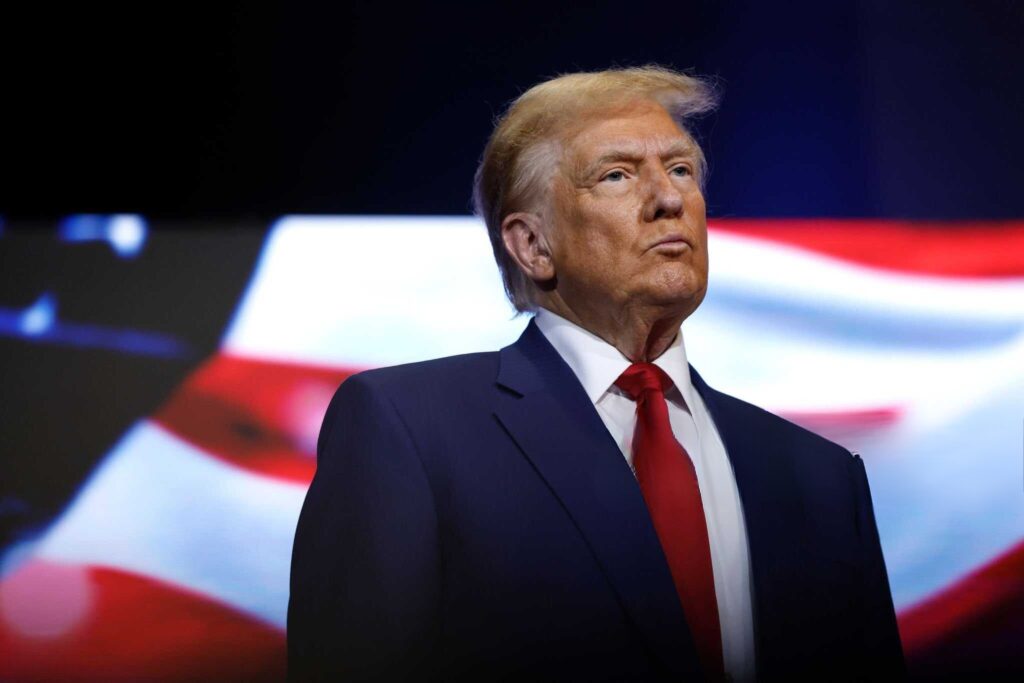In a significant policy shift, the United States has resumed deportation flights to Venezuela as part of President Donald Trump’s continued effort to curb illegal immigration. The move, which took place on Monday, saw two planes depart from an army base in El Paso, Texas, carrying nearly 190 Venezuelan nationals back to their home country.
This resumption marks a major departure from previous US immigration practices. Deportation flights to Venezuela had been largely paused for years, though there was a brief resumption under the Biden administration in October 2023. The US has faced an influx of migrants from Venezuela in recent years, as the country grapples with severe political and economic crises. Between 2014 and 2024, nearly eight million Venezuelans were forced to flee their homeland, with many seeking refuge in neighboring countries and the United States.
According to US Customs and Border Protection (CBP), Venezuelans were the second most frequently encountered nationality at the US southern border from October 2023 to September 2024. In response, the Trump administration has intensified its stance on illegal immigration, with renewed deportation efforts targeting individuals who entered the country without proper documentation.
Grenell Plays a Key Role in Deportation Efforts
The resumption of deportation flights follows a high-profile visit to Caracas by Trump’s Special Envoy, Richard Grenell. Grenell met with Venezuelan President Nicolás Maduro, and shortly after their meeting, six Americans were released from Venezuelan custody. The flights were seen as a result of the diplomatic engagement, with Grenell overseeing the boarding of migrants onto the Conviasa flights, which flew directly from El Paso to Venezuela. Images of the event were shared widely by the White House, and Grenell took to X (formerly Twitter) to express his support for the operation, saying, “Two planes of illegal immigrants left El Paso today headed to Venezuela — paid for by the Venezuelans.”
In Venezuela, state media covered the flights extensively, with Maduro emphasizing that the deportations were part of broader efforts to promote “peace, understanding, dialogue, and cooperation” between the two nations. These flights mark the beginning of a significant shift in the US’s approach to handling the Venezuelan migration crisis, signaling a new phase in diplomatic relations.
Deportations Amid Economic Strain
The decision to resume deportation flights comes at a time when the Venezuelan government is under increasing pressure, both from within the country and internationally. The ongoing economic and political turmoil has left millions of Venezuelans desperate to find a better life abroad. While some have found refuge in neighboring Latin American countries, many have sought to enter the US, where they are often caught in an increasingly strict immigration system.
The US’s handling of Venezuelan migrants is part of a broader effort to tighten immigration policies, particularly at the southern border. Despite the challenges of managing large numbers of migrants, the Trump administration has remained firm in its stance, focusing on enforcing deportations and curbing illegal entry into the country. The deportation flights are seen as a significant step in addressing what many perceive as an immigration crisis at the border, with political leaders in the US and Venezuela offering differing perspectives on the issue.
Legal and Humanitarian Concerns
While the deportation flights have been widely supported by the Trump administration, the move has sparked concerns among legal experts and human rights organizations. The US government has also begun transferring some migrants to Guantánamo Bay, Cuba, for detention. However, this aspect of the policy has run into legal challenges. In a recent case, a federal judge in New Mexico blocked the transfer of three Venezuelan men to Guantánamo Bay. Lawyers for the men argued that the individuals had been wrongly accused of ties to the Tren de Aragua gang, and they contested their detention under these allegations.
The decision to transfer detainees to Guantánamo Bay has prompted debates over the legality and ethics of such measures, particularly when dealing with migrants seeking asylum or refuge from volatile situations in their home countries. Legal advocates have raised concerns about the lack of due process for those being detained, especially as many of these individuals have fled life-threatening circumstances in Venezuela.
The administration’s decision to resume deportations and increase detention at Guantánamo Bay underscores the tough stance that President Trump has taken on illegal immigration. However, these measures have not been without controversy, with critics arguing that the approach could have long-term humanitarian implications for individuals fleeing extreme conditions.
The renewed deportation flights to Venezuela are a clear indication of President Trump’s unwavering commitment to tackling illegal immigration, especially from countries facing significant political and economic turmoil. While the flights represent a new chapter in US-Venezuela relations, they also highlight the ongoing challenges surrounding migration policies, human rights, and diplomatic engagement.
As the US continues to grapple with the complexities of managing immigration, the renewed deportation efforts, along with the legal hurdles faced by the Trump administration, will undoubtedly be key points of discussion in the months ahead. With millions of Venezuelans displaced and seeking a new life abroad, the situation is likely to remain a critical issue for both US policymakers and the international community.
Read more on Financial Mirror
